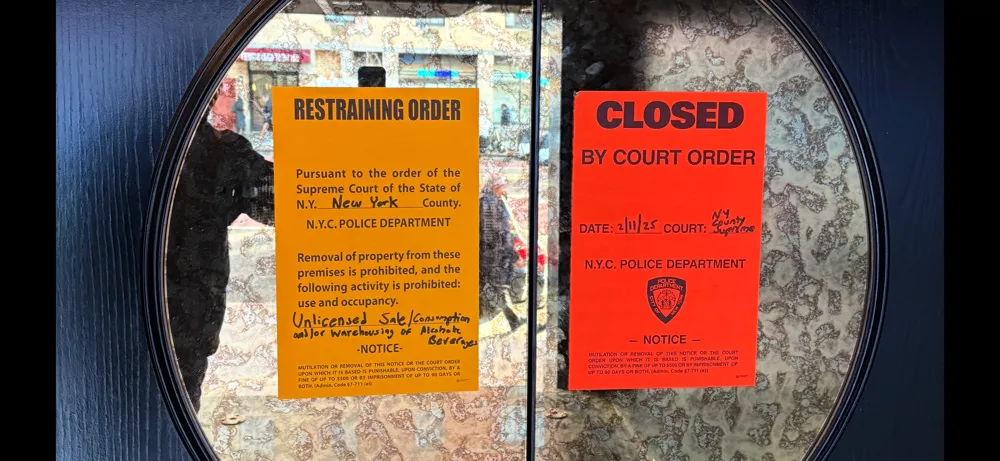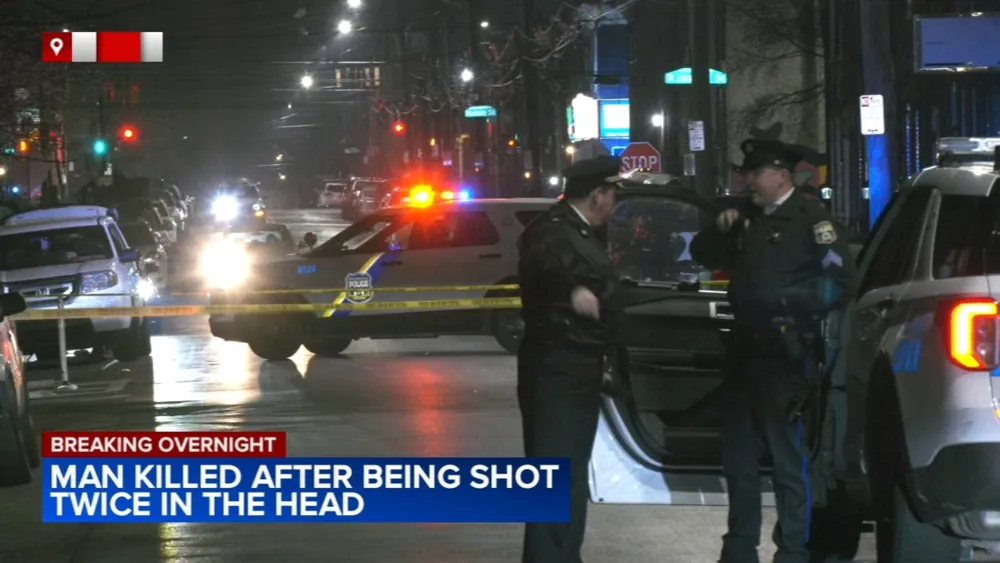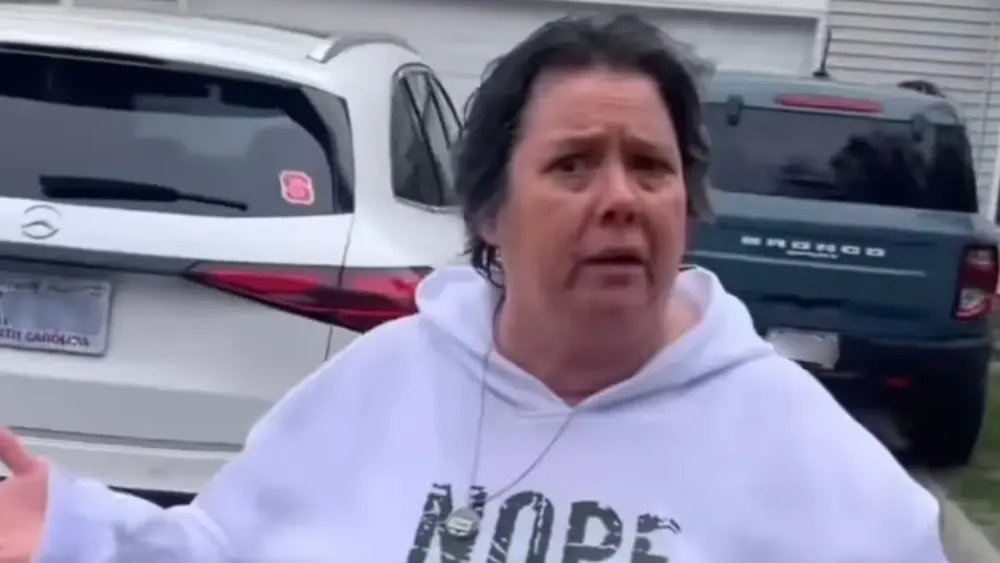Parties raged at a Midtown nightclub until a shooting led NYC to shut it down

Baby’s nightclub on West 42nd Street was open for just four months last fall, and in its short run, it brought in rappers like Bobby Shmurda and Cash Cobain, as well as an estimated $1.6 million in revenue, according to a legal filing.
But throughout that time, the buzzy Midtown venue was operating illegally, the city has alleged, and as the parties continued, violence soon followed.
Police officers said in court papers that on Nov. 1 they responded to the club — which occupied the basement and two other floors of the former Cachet Boutique Hotel — after a bouncer told them someone pulled a gun inside during a Halloween party. About a month later, on Dec. 9, officers were called again. This time, a clubgoer opened fire on a man, shooting him in the head, police said.
How a bustling nightclub was allowed to operate without a liquor license in Midtown for months is a question that is now playing out in multiple civil lawsuits. First, authorities have to determine who holds the lease to the space. In one suit, Manhattan real estate developer Ian Reisner claims he is the rightful lease holder and that his longtime friend, nightlife promoter Maureen “Baby” Lupo, “falsely” claimed the space from him. Reisner has enlisted the services of celebrity private investigator Bo Dietl’s firm to prove his case.
The city has intervened with a civil suit of its own, arguing the club was a “public nuisance” and requesting that a judge shut it down for a year. A temporary court order on Jan. 29 closed the club until at least April 2, when the next court hearing is scheduled. The Manhattan district attorney’s office has also brought misdemeanor charges against three club employees — including Lupo — for allegedly selling liquor without a license.
The multiple lawsuits and the circumstances surrounding Baby’s provide a window into a complex relationship between New York nightlife and real estate, where the lines of ownership and accountability are not always clear. The situation also underscores the city's challenges in policing nightlife spaces, including how officers are deployed to venues the NYPD believes may be at risk of violence and how officials sometimes have to go to civil court to rein them in.
“The issue is … they weren’t sure who the owner of the space was,” Robert Hantman, an attorney for Reisner, said of city authorities suing over the unlicensed sale of alcohol. “Ms. Lupo was saying that she had the space. Mr. Reisner and his company said that they had the space.”
Lupo declined to comment. Her business partner, Jason Casanova, told Gothamist they have a legal, 10-year lease right to use the space.
The real estate battle kicked off in the summer of 2024, soon after Reisner signed a lease that he said in court papers gives him control of the entire building. In a
Instead, Reisner and his business partners began discussions in June to lease the nightclub space to Lupo, according to his lawsuit. Lupo claimed to have signed a lease for the nightclub, according to court papers. Reisner said it was never finalized.
Despite the disagreement, parties began at the club, attracting a few notable hip-hop artists, Casanova said.
“I’ve had some of the biggest names there. We had Bobby Shmurda … Cash Cobain,” he said.
Posts on social media show various parties held at the club during its brief run. In some, what appear to be hundreds of young clubgoers jump up and down in a huge open space to pop music, including Miley Cyrus’ “Party in the U.S.A.”
In another, dancers surround hip-hop's DJ Drewski with electronic lights and a bottle of liquor. Others show rappers Maino, Jim Jones and Bobby Shmurda at the club.
In a court filing, Reisner alleged the club could have made up to $1.6 million in revenue from Sept. 1 through Dec. 28. Reisner claims none of the revenue was shared and he’s seeking at least $1.7 million in damages in his lawsuit.
But the parties also attracted crime, according to the NYPD.
On Halloween, multiple officers from the department's 10th Precinct were posted near the club at 512 West 42nd St. in anticipation of a party, according to a sworn statement from an NYPD lieutenant.
At about 2:20 a.m., a security guard flagged the cops down and told them someone inside had pulled a gun. Inside, the officers cleared out more than 400 people and saw multiple bar areas stocked with liquor bottles, according to the statement.
Casanova denied the incident ever happened.
“That’s total bull—,” he said. “I was actually there that night. No one showed a gun.”
No one was arrested that night, an NYPD spokesperson said.
On Dec. 9, police were again posted near the club ahead of another party. Then at about 1:30 a.m., Lupo’s boyfriend was shot multiple times in the head, according to another sworn statement by an NYPD sergeant.
The 37-year-old victim was rushed to Bellevue Hospital in critical condition, where he ultimately recovered from the injury. No arrests have been made, an NYPD spokesperson said.
Then, Reisner and his attorney Hantman hired a former NYPD detective from Dietl’s firm to investigate the shooting. Dietl, a common figure in the New York tabloids, is also an actor.
“I thought because of all the confusion and because of the seriousness of what was going on, that they should get involved in order to get a handle on it,” Hantman said.
In a report filed in court, the investigator wrote that a police source passed information to him about the shooting. A rapper had been instrumental in setting up a dice game in the backroom before the shots rang out, the investigator wrote. When Lupo’s boyfriend tried to stop the dice game, someone pulled a gun and shot him, the investigator wrote.
Casanova told Gothamist he was there the night of the shooting and was traumatized when he saw his friend convulsing on the floor after being shot.
The two incidents led the city to begin “nuisance abatement action” through its civil suit. Under the law, the city can seek to shutter businesses that are the scenes of repeated criminal activity. From Aug. 1 through Jan. 10, police said 911 dispatchers received 13 calls at the building.
On Dec. 28, less than three weeks after the shooting, Lupo and several other workers at the club were arrested on misdemeanor charges for allegedly selling liquor there without a license, an NYPD spokesperson said. Lupo declined a deal by prosecutors that would have dismissed the case if she was not arrested again for six months, a spokesperson for the Manhattan district attorney’s office said. Her attorney in the case declined to comment.
For now, NYPD flyers are stuck to the club’s windows. “Closed by court order,” one of the flyers said.

